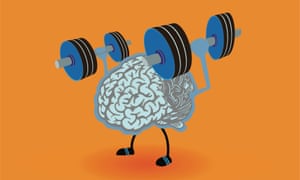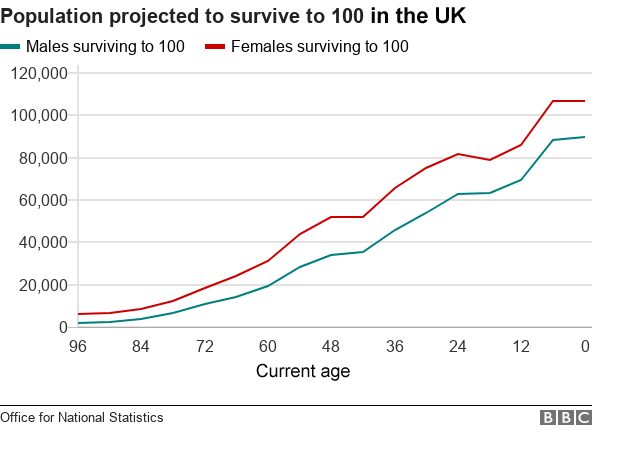Aging Gracefully
"When we started this project, we weren't really sure we could find these individuals ["SuperAgers"]. Part of the goal is to characterize them -- who are they, what are they like."
"It's likely there are a number of critical factors that are implicated [in their superior memories and distinctive brain features]."
"Social relationships are really important [to this group, possibly aiding their cognition]."
Emily Rogalski, associate professor,/Cognitive Neurology and Alzheimer's Disease Center, Northwestern Feinberg School of Medicine, Chicago
"I have a smile for everybody. I try to learn someone's name as soon as they come in [to the senior living retirement community], and if I see them, it's 'Good morning, how do you do'?"
"[I] show people I care."
"[Friends who are no longer mobile and with impaired brain health need comfort] so I fix her [95-year-old Mary] a basket about once a month of jelly and little things I make and send it over by cab."
Edith Smith, 103, SuperAger study participant
"Men aren't usually inclined to talk about their feelings, and I was a keep-things-inside kind of person. But opening up to other people is one of the things that I learned to do [on retirement]."
"We learn people aren't alone in the problems they're dealing with."
"You really get a sense of still being alive. You get a sense of not being alone."
William "Bill" Gurolnick, 86, SuperAger study participant

Finding that link would go a long way to explaining how it is, for example that a 103-year-old woman like Edith Smith mentors and comforts her friend aged 101 with whom her relationship dates back 70 years, and another who is 90, whom Ms. Smith visits at her retirement facility along with a 95-year-old friend who no longer leaves her house. In addition to which this woman remembers the birthdays of others in her senior community, recognizing those milestones with a card and a treat to ensure they know they're not forgotten.
She was a perfect fit for the study, given her lively interest in others and commitment to keeping in touch with them. Every few years the group participants were asked to complete surveys relating to their lives, and they were also exposed to a battery of neuropsychological tests, brain scans and a neurological examination, as well as other types of related evaluations. In the process the researchers discovered 31 people with exceptional memories located in Illinois and next-door states.
Northwestern researchers had undertaken research on previous occasions which revealed potential clues that SuperAgers' brains have features that set them apart from the ordinary; thicker cortexes, a resistance to age-related atrophy and a larger left anterior cingulate (part of the brain linked to attention and working memory). The researchers, however, felt that it was not brain structure alone fully accounting for the unusual mental acuity of SuperAgers.
 |
| Image: The Guardian |
Theirs was not the only study that found links between positive relationships with others and a reduced risk of cognitive decline, mild cognitive impairment and dementia. There was a gap, however, where researchers had failed to examine how these relationships are sustained and whether the experiences of SuperAgers might represent a life-lesson for others in their age groups. Edith Smith's cheery outlook on life and ability to communicate her welcoming attitude to others represented a case in point.
Another was William Gurolnick's realization that if he allowed his defences to melt away he could find common issues with others and expand his friendship base to benefit himself and others. He co-founded a men's group, Men Enjoying Leisure -- with a current membership of 150 which has motivated the presence of four similar groups in the suburbs of Chicago where monthly meetings take place and personal issues are discussed as a kind of group support therapy.
Mr. Gurolnick bicycles 20 to 30 miles once weekly with over a dozen older men, mostly from his men's group and on another day of the week there is a walking group. Mid-week he participates in several hours of water volleyball at the Bernard Weinger Jewish Community Center, and the following day he returns to play a racquet sport, pickleball.
Yet another of the SuperAgers, 88-year-old Evelyn Finegan, hard of hearing and with macular degeneration, is otherwise healthy. "It's very important to keep up with your friends -- to pick up the phone and call", she explains, speaking with a good friend on a daily basis and chatting intermittently with four others from high school. She attends church, goes out to a monthly book club, volunteers at a resale shop, and socializes in her building, as well as belonging to a club of Welsh women.
"It's so nice to spend time with Evelyn", her upstairs neighbour, 91-year-old June Witzl says, who often drives Finegan to doctor appointments. "She's very kind and very generous. And she tells you what she believes so you really feel like you know her, instead of wondering what's on her mind." Proving, indelibly, that when we think of others, communicate with other people, do things with others, we reinvest in our own good mental and physical health, while aiding them in doing the same.
With so much to think about outside of our own introspective functions, we enliven our lives and brighten our thought processes, adding value to our everyday lives, with the additional bonus being that in the process of doing so, refresh our brains. What's not to like?
There are things the average person can do to stay sharp: As we age, our brain's gray matter — the stuff we rely on for seeing, hearing, processing emotions, exerting self-control, learning new information, and more — shrinks and degrades. So too does our brain's white matter, which contains the complex web of twisting fibers (wiring, essentially) that carries information across different parts of the brain.
A small 2014 study published in the journal Nature Communications suggested that in some older people, white matter may act as a sort of backup generator that can fire up when gray matter reserves run down. If that doesn't happen, however, people experience the typical effects of aging — fuzzier memory, a harder time paying attention, and difficulty learning new skills.
Super-agers and people gifted with extra-flexible white matter are rare, but some research suggests there are things the average person can do to stay keen with age as well. These include getting regular exercise, maintaining strong bonds with friends or family, quitting or not starting smoking, and learning new things or being intellectually challenged. So if you've been meaning to meet up with some old friends or have been putting off joining that yoga studio, there's no time like the present.
Business Insider, Erin Brodwin, November 2017


0 Comments:
Post a Comment
<< Home